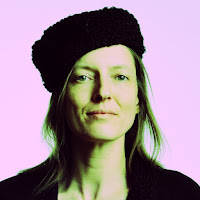Unlikely Poets - Airs April 22nd
Voices of the Stringtown Poetry Workshop from Abby Wendle
In the late 1970's, Mary McAnally led a poetry workshop for the inmates at Stringtown Prison in Oklahoma. She taught at the prison twice a week for three years, helping many of the prisoners get published in literary journals across the country. In this segment, we hear McAnally discuss the movement to rehabilitate prisoners. We also hear two of the prisoner poets, Milton Gracen and William "Indian Bill" Hogner, read and discuss their poetry.
Warrior Poets by Samara Breger
Clearly there is a need to increase understanding between cops and the communities they serve. And so the Portland Police Department recently faced down a daunting task: writing poetry. Local performance artist Marty Pottenger wished to harness the transformative power of poetry to bring officers more in touch with their emotions, improve moral, and change preconceived notions about them. It should also make them better at their job; the creative process increases our ability to see contradictory perspectives, work collaboratively, and analyze complex challenges. Can poetry really help to serve as the bridge that shifts notions of the police force from obstacles to allies?
In the late 1970's, Mary McAnally led a poetry workshop for the inmates at Stringtown Prison in Oklahoma. She taught at the prison twice a week for three years, helping many of the prisoners get published in literary journals across the country. In this segment, we hear McAnally discuss the movement to rehabilitate prisoners. We also hear two of the prisoner poets, Milton Gracen and William "Indian Bill" Hogner, read and discuss their poetry.
Warrior Poets by Samara Breger
Clearly there is a need to increase understanding between cops and the communities they serve. And so the Portland Police Department recently faced down a daunting task: writing poetry. Local performance artist Marty Pottenger wished to harness the transformative power of poetry to bring officers more in touch with their emotions, improve moral, and change preconceived notions about them. It should also make them better at their job; the creative process increases our ability to see contradictory perspectives, work collaboratively, and analyze complex challenges. Can poetry really help to serve as the bridge that shifts notions of the police force from obstacles to allies?




Comments